Dispelling 10 Common Football Manager Misconceptions
When a Football Manager career isn’t going well, it’s natural to want something or someone to blame. From suggestions that the game is scripted to theories that the AI always gets better cup draws, we’ve seen pretty much everything over the years on our forums and social media.
While we appreciate your feelings, these beliefs are invariably just misconceptions about the way the game works. Football Manager is, and has always been, a complex game where thousands of decisions take place in every game and individual results, or a run of bad injuries, are almost never caused by a single factor. Here, we aim to dispel 10 of the most common Football Manager misconceptions.
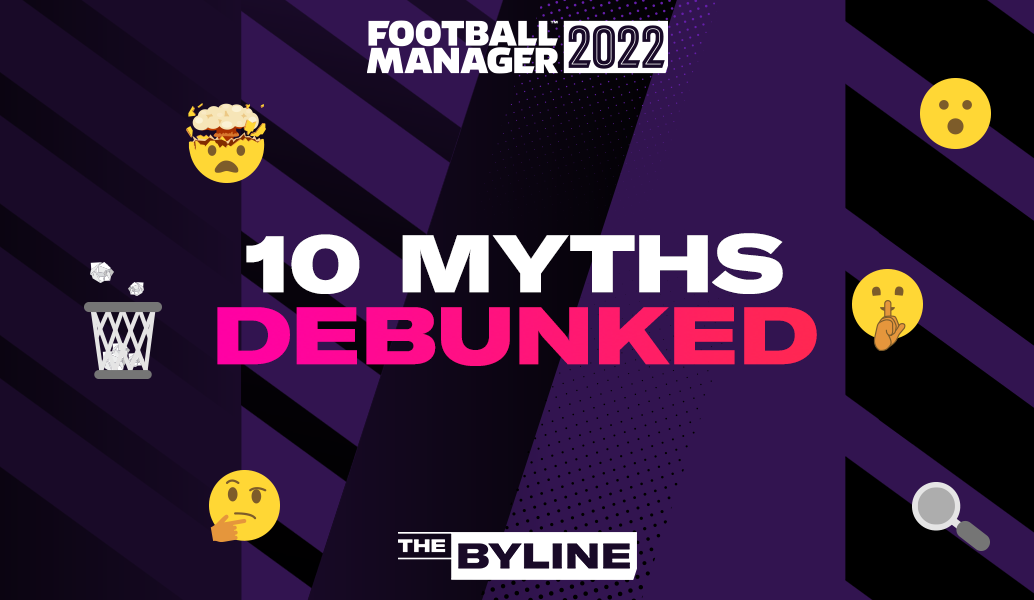
Misconception #1: My tactic has stopped working
While a 10-game unbeaten streak may have given way to six without a win, no good tactic becomes bad overnight. The reasons for your results changing can be varied and often have nothing to do with the tactic itself. It could be that your team statistically overperformed in your opening games and your winless run is merely a levelling off to where your team should realistically be.
Personnel changes can also often have an impact. Bringing in a raft of new signings will disrupt your team’s Tactical Familiarity, while general fatigue during the season means that sometimes your players have off days.
Remember too that in the same way that you can scout the opposition, the opposition are scouting you too - so they may have found an issue in your tactic for them to exploit. While the tactics of the Football Manager AI are partly based on overall reputation, they'd be foolish not to look at your recent form and league position to dictate their approach. Whatever the reason for a few poor performances, it’s highly unlikely that your tactical approach has stopped working altogether.
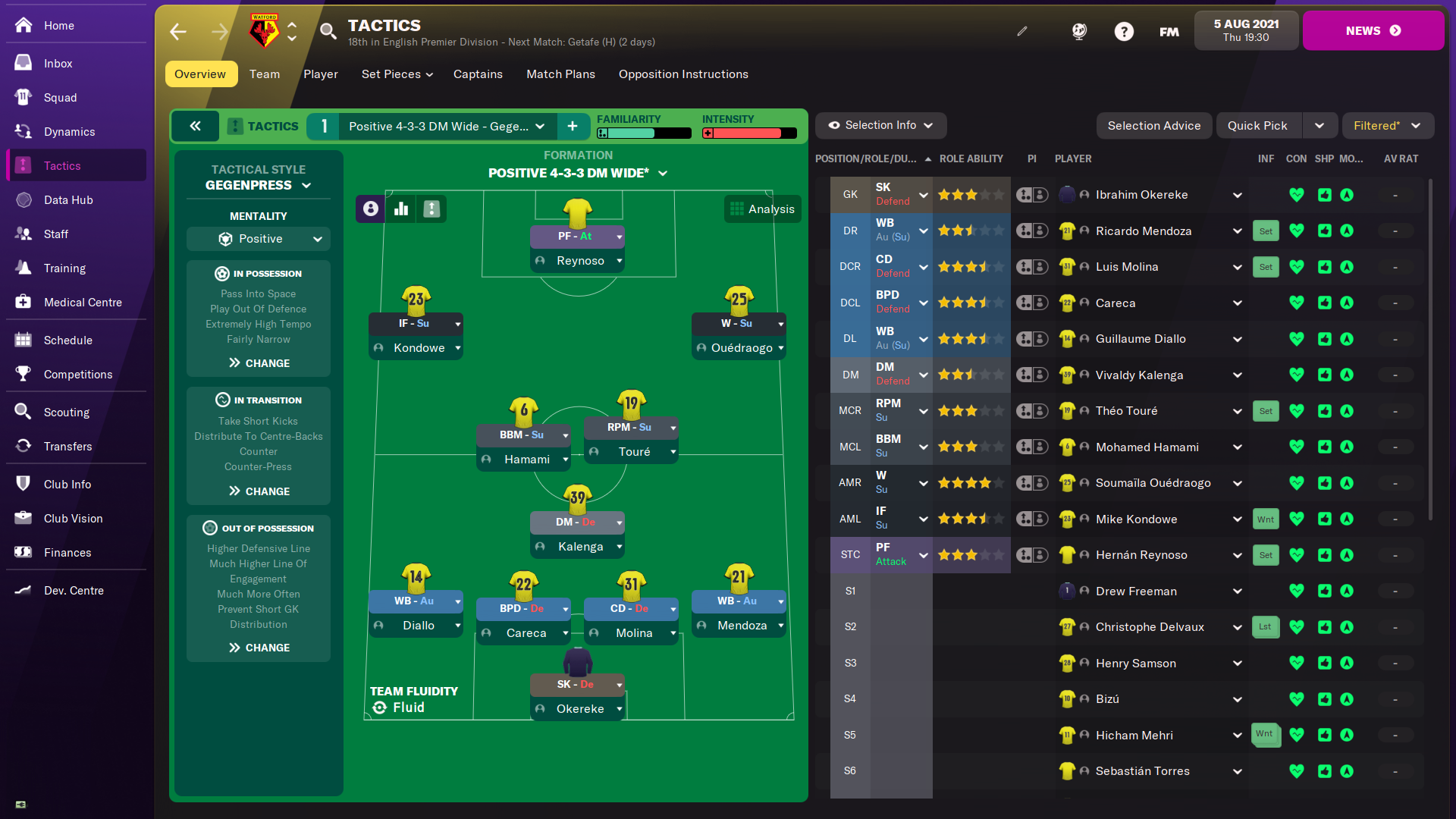
Misconception #2: The game wants me to lose
Putting it simply, no, of course the game doesn’t want you to lose. In fact, there is nothing preventing you from winning every match you play and every trophy you compete for in Football Manager.
However, as every team in the history of football has proved, no one is unbeatable. Sometimes you lose in a ‘fluky’ way and sometimes you get outplayed. That’s the way it goes. There’s a chance you’ve done everything right but just don’t win. That’s the curse of the manager; you’re in control of the team but you can’t control everything that happens in a match.
In Football Manager, hundreds of thousands of decisions are made in every match and those decisions are influenced by a host of factors. From the impact of hidden Attributes such as Consistency and Important Matches on a player’s performance to any mid-game tactical and personnel adjustments you make, as well as the altitude you’re playing at and the distance you’ve had to travel for a fixture, everything plays a role. Having so many factors at play means that every match is unique and that no outcome is pre-determined.
Misconception #3: I get too many injuries in my Football Manager careers, no real clubs get this many
To start, it’s worth noting that there is often a recency and memory bias when it comes to injuries; if you’ve just played through four game weeks in a session of FM and experienced four injuries, the idea that there might be too many seems obvious. However, you might not have had an injury for the six weeks prior to that. Four injuries over a 10-week period is not too bad when you think about it, particularly if you’re in a congested part of the season.
Precise injury data from real-world clubs, particularly for slight knocks experienced during the week that players might not miss any games through, isn’t always publicly available. From what we know, injury levels in FM are comparable or even lower in some cases than they are in real life. The data we have is incorporated into the Medical Centre to provide an expected number of injuries in a season – use that for reference when looking at your total and those of other teams in your league during the season.
There are ways to try and prevent injuries in Football Manager, though. Managing your training schedule and intensity to not relentlessly overwork your players is a simple step, as is referring to the Medical Centre to learn who needs a rest and who suffers from recurring injury problems. Rotate regularly and maximise many leagues now allowing five substitutions per game rather than three.
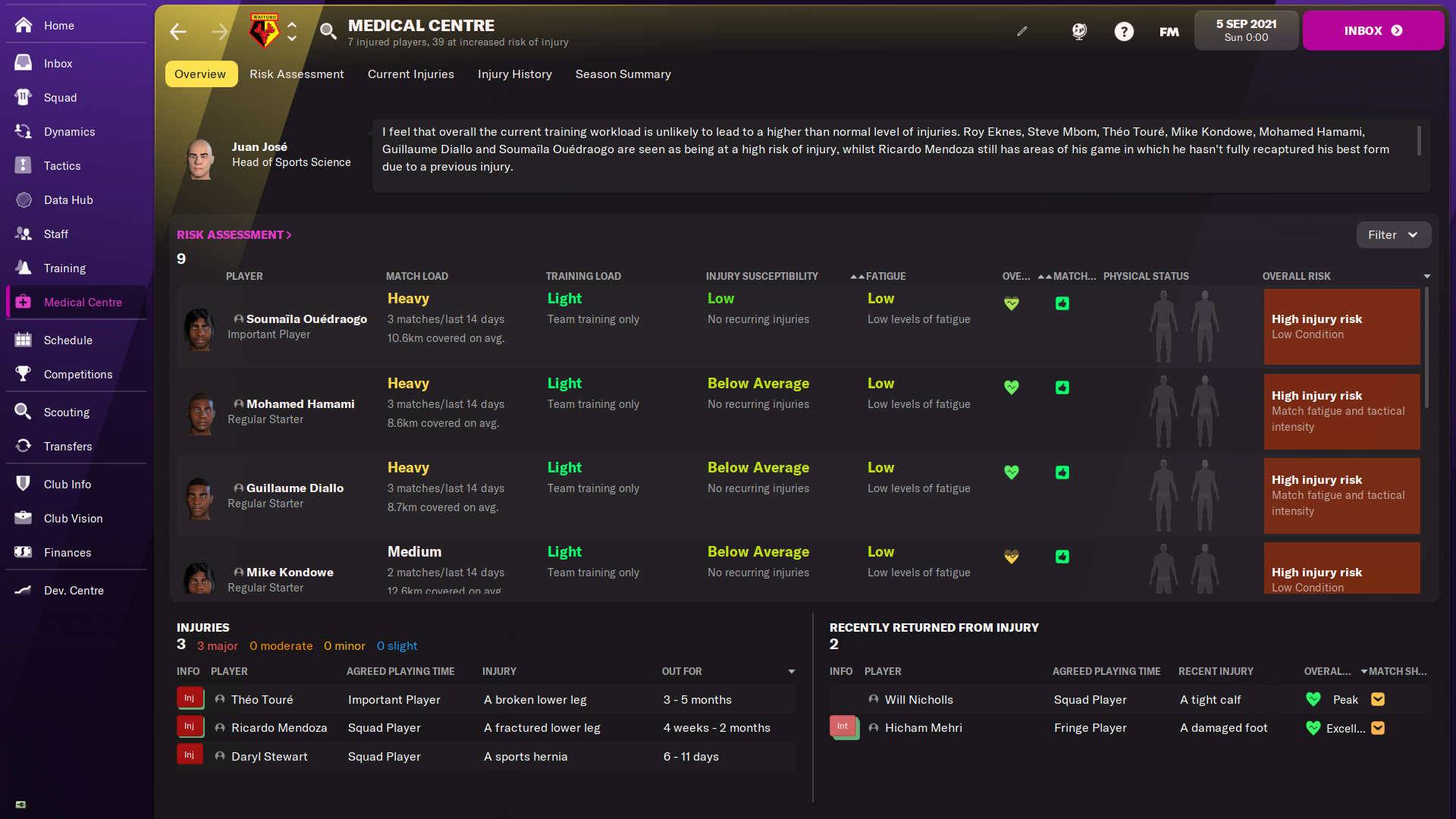
Misconception #4: You must play with an attacking mentality to have an attacking tactic
A lot of people seem to think that the Mentality dropdown in the Tactics menu is a sliding scale of the sort of football your team will play and that’s not entirely right.
Mentalities are a byword for your overall approach to a game or a certain situation but they are just one cog in the wider wheel that determines how your tactic plays out in the Match Engine. The roles and duties you give to your players will affect your team’s shape in and out of possession, as will your tactical instructions.
For example, if you were playing 4-4-2 with both wide players on Attack duty, that would look more like a 4-2-4 when you are in possession and so would be very attacking. If those wide players were on Support or Defend, then they would tend to play in a more conservative way, regardless of the Mentality being used.
Misconception #5: Having too many team instructions is bad for your tactic
A tactic with several tactical instructions isn’t necessarily bad per se, it just increases the chances of you having selected instructions that don’t complement each other.
All team instructions interact with one another, as well as the Mentality chosen, the player roles you’ve picked and any individual instructions you’ve added. For example, if you ask your Goalkeeper to Roll it Out but have a Very High Defensive Line, they’ll probably have to kick it every time because they won’t have suitable options available. Likewise, if you give a player too many individual instructions, they’re more likely to get confused as to what exactly you’re expecting from them.
Generally, we recommend starting out with fewer instructions in your opening games. This keeps things simple as you begin to understand how what’s working and what isn’t with the tactic. From there you can add and remove as you see fit until you build something capable of dominating at home and abroad.
Misconception #6: The AI plays with a different Match Engine to a user
We’ve often seen users on social media and our forums say that they feel like they need 30 shots to score once in a game while AI teams only need one. Now, this sort of thing happens much more regularly in real life than people seem to think. In FM, it happens not because FM players and the AI are using different Match Engines but because of the blend between the tactics being used.
FM players and the AI have the same tools at their disposal to create tactics, but human players often go a little offbeat with their shapes and choices. This tends to create interactions they might not see, or see very rarely, with the AI.
It’s also worth remembering that quantity doesn’t always equal quality. You might have had 10 shots in the first half but if they’re all from outside the box, how good have those opportunities really been? Having a high xG can sometimes be an aggregation of low value shots, so as manager it’s your job to keep track of those chances to make sure they’re showing you the whole picture.
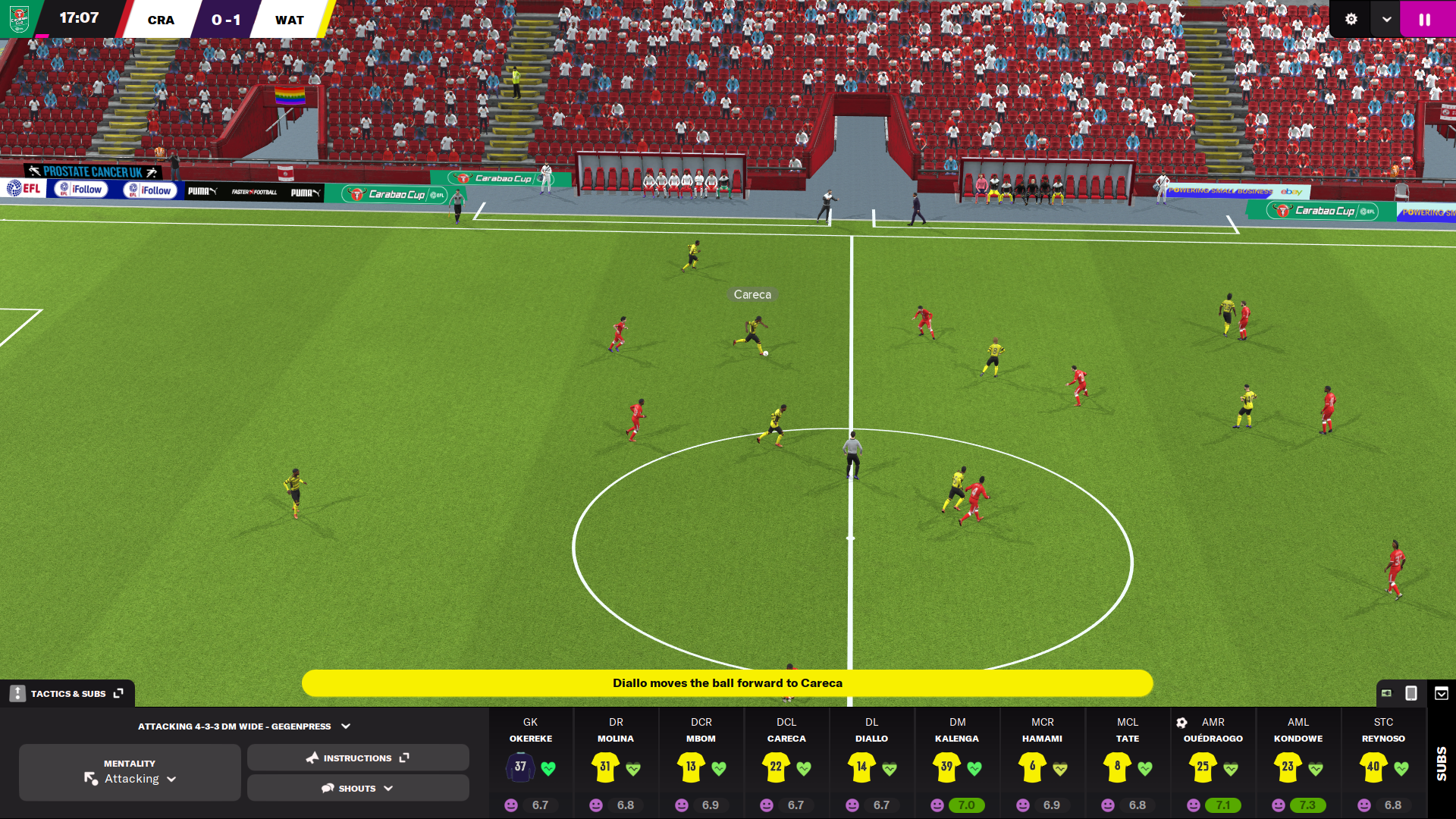
Misconception #7: The AI teams always get better Newgens than me
Newgen envy is real. While it is true that certain nations and clubs seem to be Golden Boy factories in-game and in real life, that does not mean that you’re consigned to permanent disappointment on Youth Intake Day or that there’s nothing you can do as manager to improve the quality of your Newgens.
This is something we have explored on The Byline previously, but we’ll give you a quick rundown here of some of the steps you can take. Upgrading your Facilities directly impact the quality of your Newgens over time, while improving the natures of your backroom staff will directly impact the personalities of those prospects before they hit the intake screen. Recruiting a great Head of Youth Development in 2022 won’t suddenly give you amazing Newgens in 2023 or even 2024 - their influence is strongest with the younger, more impressionable players hidden in the club's background (think 2025 and beyond).
Even with the best possible Facilities, Staff and infrastructure, there is still an element of chance on Youth Intake Day. That elusive ‘golden generation’ might happen in your first season or might never materialise at all – that’s part of the fun, though, isn’t it?
Misconception #8: A player’s star rating is directly tied to their Current Ability
Star ratings are not calculated on a fixed scale in Football Manager for all players but instead are relative to the quality of your squad and the leagues and competitions you’re playing in. For example, a winger might be considered a five-star player for your team in Sky Bet League Two but when you achieve promotion to Sky Bet League One, they’ll only be three or four.
Additionally, a player might receive a high rating because they are your best option in that position at the time. However, if you make a new signing that’s a considerable improvement, that initial player’s rating is likely to drop accordingly. Also, bear in mind that these ratings are not absolutes or perfect representations as they’re a coach or scouts opinion of that player.
Misconception #9: A player’s role suitability rating must be high for them to do well in a role
We know what it’s like, you see high role suitability star ratings and immediately start adjusting your tactic to get your best players playing in all their best roles to get a sea of stars on your screen. However, that can often throw out the balance of your tactic and prevent it from working as well as it could or should.
Role suitability star ratings are determined by a few different things; the key things are how natural the player is in that position and how they score for the Attributes relevant to the specific role.
There’s often a broad amount of overlap in the Attributes needed between the differing roles in a certain position, though. So, while studying a player’s Attributes might show that their best position is as an Advanced Playmaker, they will also probably indicate that they would be effective as a Central Midfielder or Box-to-Box Midfielder.
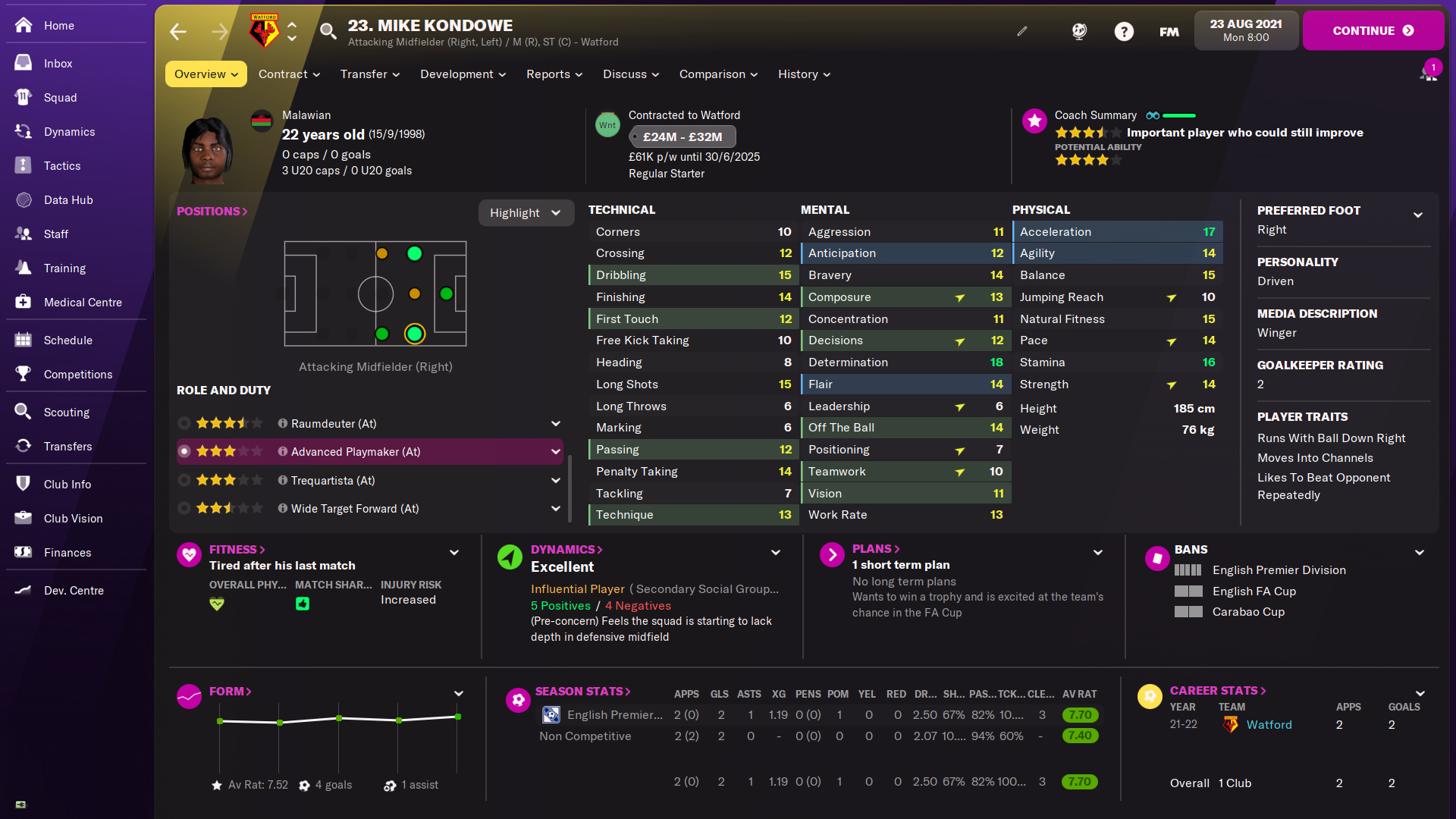
Misconception #10: Morale isn’t that important
Morale is overlooked in many Football Manager careers but it can be key in making or breaking a season.
Discontent often emerges around playing time. Using squad views to get an understanding of what your team expect and managing that throughout the campaign should ensure that everyone stays happy.
Should heads start to drop, there are tools at your disposal. Staging Team Meetings can often have a profound impact on your team’s subsequent performances, while adding Team Bonding sessions to your Training schedules will help improve the happiness and togetherness of your whole first-team squad.
Hopefully this has helped to dispel some common Football Manager misconceptions. The truth is out there if you know where to look – if you’re ever unsure of how something is working in FM, consult the Help and Guides section of our website or head over to our community forums, where you can engage with our community team and extremely knowledgeable volunteer moderators.
















